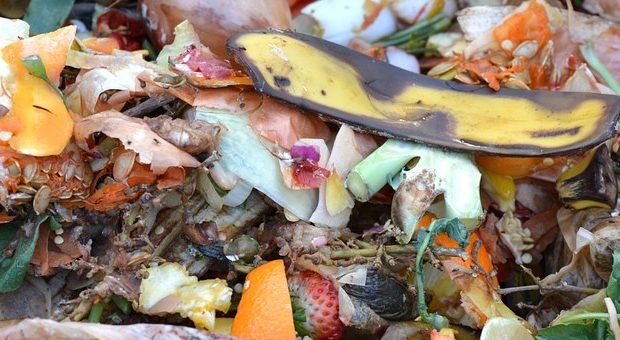Will city composting ever make it to multifamily residences?
Friday, September 29, 2017 by
Jessi Devenyns Some people in Austin saw a new, green compost bin waiting at the curb when they arrived home from work this week. However, although the city of Austin’s single-family residence composting program is entering its next phase, the next question that needs to be answered is how to include multifamily residences in the initiative.
At the Zero Waste Advisory Commission’s Universal Recycling Ordinance Committee meeting on Sept. 27, this was the discussion at hand.
To date, there has only been one multifamily residence composting study done by the city of Austin, and that was completed in 2013. In order to help fill in the knowledge gap and make implementation an achievable goal, Ron Neumond, a strategic initiatives planner for Austin Resource Recovery, researched other American cities that had successfully put multifamily residence composting into practice.
Surprisingly, there are only 13 cities nationwide where multifamily residences are mandated to compost. Only three are outside of California – Boulder, CO; Seattle, WA; and New York, NY. While overall the programs have been successful, Neumond was unable to pinpoint a single deciding factor for success. He suggested that education may be a key component, but was unable to confirm the educational budgets of the individual cities to compare to the city of Austin.
Roslyn Kygar, a planning senior for the business outreach team of Austin Resource Recovery, however, said that education is the most critical component to ensuring the success of Austin’s composting program. “It’s time intensive but extremely effective,” she said.
At this point, education is Austin Resource Recovery’s paramount focus because the desire to compost, it seems, is not there. “We’ve had stakeholder meetings to see who wants composting,” Kygar explained. “The percentages are very low. I would say somewhere below 10 percent. Recycling capacity though is certainly what we hear more about.”
Introducing composting into multifamily residences is a two-part process. First, Austin Resource Recovery is working to ensure that all multifamily properties comply with the Universal Recycling Ordinance that will be completely phased in on Oct. 1.
In all, 1,950 multifamily properties with approximately 190,000 dwelling units will be affected. Multifamily includes apartments, dormitories, mobile home parks, condominiums and assisted living facilities.
The Universal Recycling Ordinance, which entered its first phase in 2012, requires that multifamily properties meet minimum recycling requirements including giving residents access to receptacles that are large enough to hold 6.4 gallons per dwelling unit per week. For commercial properties, this ratio is increased to one to one, where recycling capacity must equal that of the trash.
Despite mandated recycling, the trash capacity remains far higher than recycling capacity at multifamily properties. “We see a lot of overflowing recycling carts, and that causes a lot of problems,” said Kygar.
To try to alleviate this, Austin Resource Recovery encourages properties to upgrade their recycling carts to dumpsters as well as implement composting.
“We’ve been encouraging a lot of multifamily properties to compost with our zero-waste rebate. But we haven’t been successful at encouraging many to do this,” said Kygar. According to her, many residents are concerned with the cost and complexity of composting as well as the potential smells, rodents or insects compost would encourage.
However, there is one exception. “The properties that we have heard that are the most successful are the ones that have valet (trash service),” she said.
One of the variables hindering the forward progress of composting in multifamily residents is turnover. With both property managers and residents in constant flux, it is difficult for Austin Resource Recovery to repeatedly reeducate in an effort to generate enthusiasm for the initiative.
Kygar said that the biggest barrier it comes up against is the trash can myth. “A lot of people think as soon as they put it in the trash bin, poof, it’s gone,” she says. “They don’t understand that compost is exactly the same concept.”
She did note that more economical composting options and guarantees of tight-closing lids were possible methods to make composting a more mainstream waste diversion option.
The Austin Monitor’s work is made possible by donations from the community. Though our reporting covers donors from time to time, we are careful to keep business and editorial efforts separate while maintaining transparency. A complete list of donors is available here, and our code of ethics is explained here.
You're a community leader
And we’re honored you look to us for serious, in-depth news. You know a strong community needs local and dedicated watchdog reporting. We’re here for you and that won’t change. Now will you take the powerful next step and support our nonprofit news organization?



